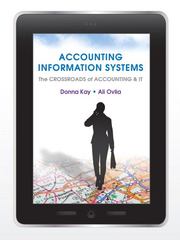Question
Red Sox a retailer of home decor products, is in the midst of its year-end audit. You, CPA, are the audit manager on the file.
Red Sox a retailer of home decor products, is in the midst of its year-end audit. You, CPA, are the audit manager on the file. As you've gained an understanding of the entity and its internal controls, you have compiled the following information about MML's purchases, payables, and payments cycle:
Ordering of inventory
A perpetual inventory system tracks the inventory stored in Red Sox's warehouses and retail locations. Inventory is counted on a monthly basis and reconciled to the perpetual system.
The purchasing manager must approve all purchase orders, initialling each purchase order form before it is submitted to the suppliers. For any order over $20,000, further approval must be obtained from the vice-president of operations, who then signs the purchase order.
Approved purchase orders are given to the purchasing clerk, who places the order with an approved vendor from the vendor list. Once the order has been placed, the purchasing clerk provides the purchase order to the receiving department to be used when the goods are delivered.
Receipt of inventory
All goods are received in the loading docks during business hours. The loading dock is locked between shipments and only designated warehouse employees are given a key to open the loading dock to receive goods.
When goods arrive at the warehouses, the receiver ensures there is a purchase order related to the shipment and matches the packing slip to the approved purchase order. If there are discrepancies between the packing slip and the purchase order, or between what has been received and what is on the packing slip, the discrepancies are noted on the purchase order. The receiver initials the purchase order to indicate goods have been received as noted, a copy of the paperwork is made for the receiving department, and the documentation is then submitted to accounts payable for processing.
Accounts payable and disbursements
When the supplier invoice is received, the accounts payable clerk agrees the quantities and amounts on the invoice to the packing slip and the purchase order, noting any discrepancies. The accounts payable clerk initials the invoice to indicate his or her review. Any discrepancies are resolved by the controller, and the controller initials next to any changes. The invoice is then coded and the accounts payable clerk enters the invoice into the system.
Each week, the system automatically generates cheques for any invoices due. The accounts payable clerk supports each cheque with the invoice, the packing slip and the purchase order. The cheques and the supporting documents are then given to the controller for approval.
Cheques require dual signatures and may be signed by the controller, the vice-president of operations, the president, or the CEO. Supporting documentation must be initialled at the time of signing by the cheque signer to indicate that it has been reviewed.
Required
You are planning to use a combined audit approach and are assessing which controls can be relied on. Write memo to the audit file which identifies (a) the controls that are in place in the purchases, payables, and payments cycle, describing the purpose of the control; and (b) a procedure that could be used by the practitioner to test the control.
For each control cited, 3 marks will be awarded for the control description, and 2 marks for the procedure.
Step by Step Solution
There are 3 Steps involved in it
Step: 1

Get Instant Access to Expert-Tailored Solutions
See step-by-step solutions with expert insights and AI powered tools for academic success
Step: 2

Step: 3

Ace Your Homework with AI
Get the answers you need in no time with our AI-driven, step-by-step assistance
Get Started


